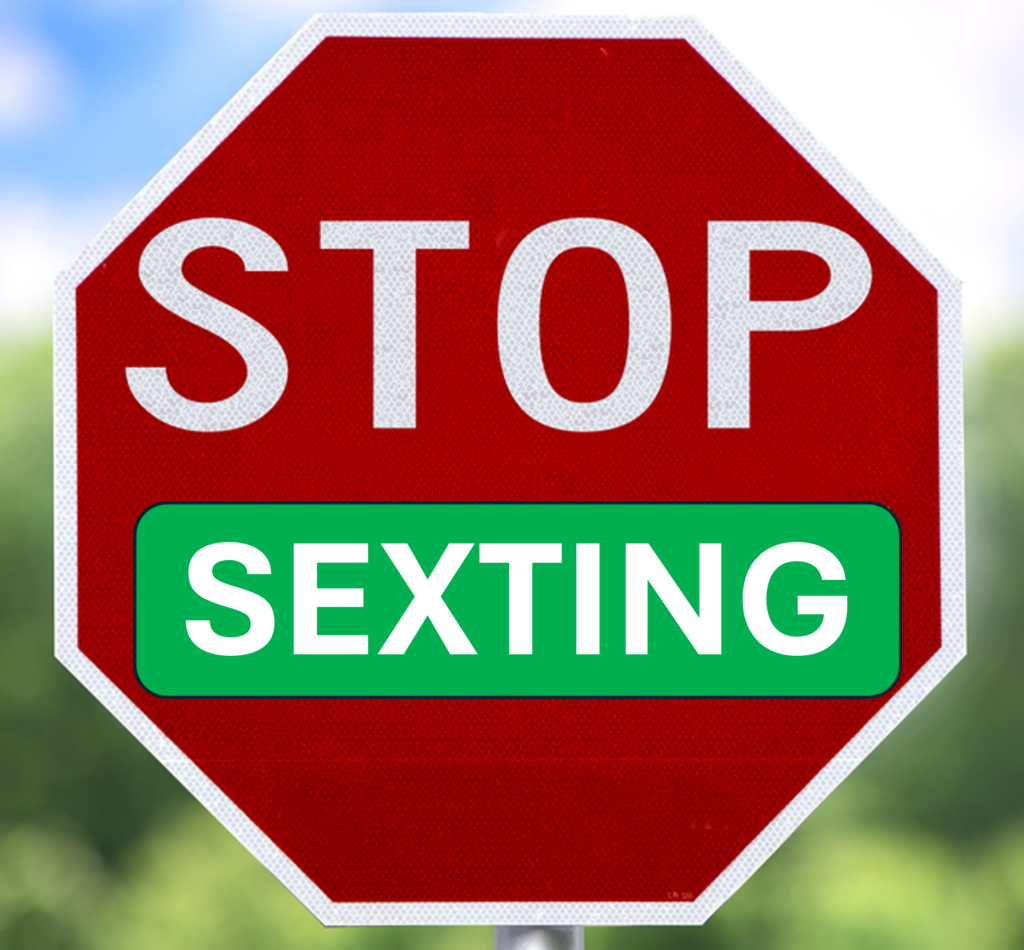In today’s digital age, where communication is just a click away, sexting has become an increasingly common form of expression among individuals, especially young adults and teenagers. While sharing intimate messages, photos, or videos may seem harmless and consensual, it’s crucial to be aware that sexting can have serious legal consequences, especially in the state of Florida.
As technology continues to shape our lives and relationships, it’s essential to stay informed about the laws that govern our actions online. So, let’s break down key points of this Florida law and demystify what Sexting is, explain how it affects individuals involved, and what you can do as a parent, educator, or young adult navigating the complexities of online communication.
What Is Sexting?
Sexting has become widespread among people of all ages, but it is particularly prevalent among teenagers. Sexting refers to the act of sending sexually explicit messages, photos, or videos through electronic devices, such as smartphones or social media platforms. It often involves intimate content intended for a romantic partner or someone with whom the sender shares a close relationship.
A study conducted by the Pew Research Center found that a significant number of young adults between the ages of 18 and 29 have engaged in sexting, with approximately 44% admitting to sending or receiving explicit messages or media. The increased interest in sexting has been contributed to the increased use of smartphones and the ease of accessing various messaging apps.
While sexting can be seen as a form of consensual communication, it can become a difficult discussion when minors are involved. The state of Florida recognizes anyone under the age of 18 to be a minor. Additionally, in Florida, the exchange of explicit material with individuals under the age of 18 is considered child pornography, regardless of whether both parties willingly participated.
As sexting becomes an integral part of modern communication, it is crucial to educate young individuals about the legal and emotional implications associated with this behavior. By fostering open discussions about responsible digital behavior, consent, and privacy, we can empower our youth to make informed decisions and avoid potential legal troubles.
Understanding Florida Law
Florida, like many other states, has enacted specific laws to address the growing concern of sexting, especially when minors are involved. These laws aim to protect young individuals from potential exploitation and safeguard their digital safety.
Under Florida law, sexting involving minors is treated with strict regulations, Sexting includes possessing, creating, or distributing explicit images or videos. If minors are involved in any way, it immediately is classified as child pornography laws, regardless of the sender’s age. The goal is to deter the creation and dissemination of sexually explicit content involving minors and to protect young individuals from potential exploitation and harm.
Additionally, Florida law strictly prohibits possessing, distributing, or producing sexually explicit material involving minors. This includes sending, receiving, or forwarding explicit images or videos of individuals under the age of consent, regardless of whether it was consensual.
Potential Consequences of Texting
Sexting, though often perceived as a harmless act of sharing intimate messages or media, can have serious and far-reaching consequences, particularly when minors are involved. As previously stated, Florida treats sexting incidents involving minors as a form of child pornography. Those involved in sexting can face one of the following charges:
● Felony Charges: In cases where individuals are found guilty of producing, distributing, or possessing explicit content, they may face felony charges, leading to severe penalties, such as jail time or a hefty fine.
● Misdemeanor Charges: In some instances, the severity of the offense may warrant misdemeanor charges, which can still result in fines, probation, or community service.
● Sex Offender Registry: Those convicted of child pornography-related offenses may be required to register as sex offenders, leading to potential restrictions on housing, employment, and community integration.
Sexting-related charges can have long-lasting effects on an individual’s personal and professional life. Having a criminal record associated with child pornography can create significant challenges, affecting opportunities for employment, education, and housing. The social stigma attached to such offenses can lead to isolation and strained relationships with family and friends.
Furthermore, the conviction of sexting may negatively impact an individual’s college applications, job interviews, and volunteer opportunities. Not to forget the critical aspect that individuals often overlook is the permanence of content on the internet. Even if explicit messages or media are intended for a single recipient, there is no guarantee that the content will remain private. Once shared, it can be easily forwarded, saved, or reposted by others without the sender’s consent. Sexting incidents can easily go viral, leading to widespread embarrassment and humiliation for those involved. The content can never truly be deleted or removed.
Importance of Education & Prevention
Understanding the severe consequences of sexting is crucial for young individuals and adults alike. Parents, educators, and guardians play a vital role in educating our youth about responsible online behavior, the legal implications of sexting, and the significance of respecting personal boundaries.
By fostering open and non-judgmental conversations, we can empower individuals to make informed decisions and avoid potentially life-altering consequences. Additionally, providing access to resources and support for those who may have faced or are currently facing sexting-related issues can promote a safer and more responsible digital landscape. Open and honest communication is key to fostering a safe environment where young people feel comfortable discussing their online experiences and concerns.
You need to ensure children:
● Understand the gravity of the situation can deter young individuals from participating in risky behavior.
● Understand the importance of promoting consent and boundaries.
● Understand that they will be charged for breaking the law if they are under legal age.
● Understand proper digital safety practices and safeguard personal information.
● Are empowered to say “no” if they do not wish to share explicit content.
● Have a trusted adult or authority to speak to if they need assistance.
It is extremely evident that as technology grows, we must begin to think about the impact it will have on the world around us. Sexting is a complex and multifaceted issue, especially when minors are involved. While it may seem harmless on the surface, sexting can have significant legal, personal, and emotional consequences. Regardless of intent, engaging in sexting with minors can lead to serious criminal charges, including potential felony offenses and registration as a sex offender.
Sexting education and prevention are vital components in empowering young individuals to make responsible decisions in their online interactions. Parents, educators, and guardians have a crucial role to play in educating young people about the legal boundaries and risks associated with sexting. Open and non-judgmental discussions about consent, boundaries, and digital safety can create a safe space for young individuals to seek guidance and share their concerns. By fostering a supportive environment, we can help them navigate the complexities of relationships and digital communication responsibly.
What To Do If You Have Been Detained For Sexting?
Let Central Florida Bonding help you. Contact us today and we will use our extensive experience in assisting you bond out of jail. We offer bail bonds for a wide range of charges. Check out our FAQ section on our website for more information on our website on how we can help you https://cfborlando.com/frequently-asked-questions/. You can also call us directly at 407-841-3646.
In addition to serving the entire Central Florida area, Central Florida Bonding also serves the cities of Sanford, Altamonte Springs, Lake Mary, Oviedo, Longwood, Winter Park, Winter Garden, Maitland, Casselberry, and several other cities in the area. We are located at 2911 29th Street, Suite 300 in Orlando, Florida 32839, and are available 24 hours a day, 7 days a week, to help bond inmates from jail. Contact us today so that we can help you!





